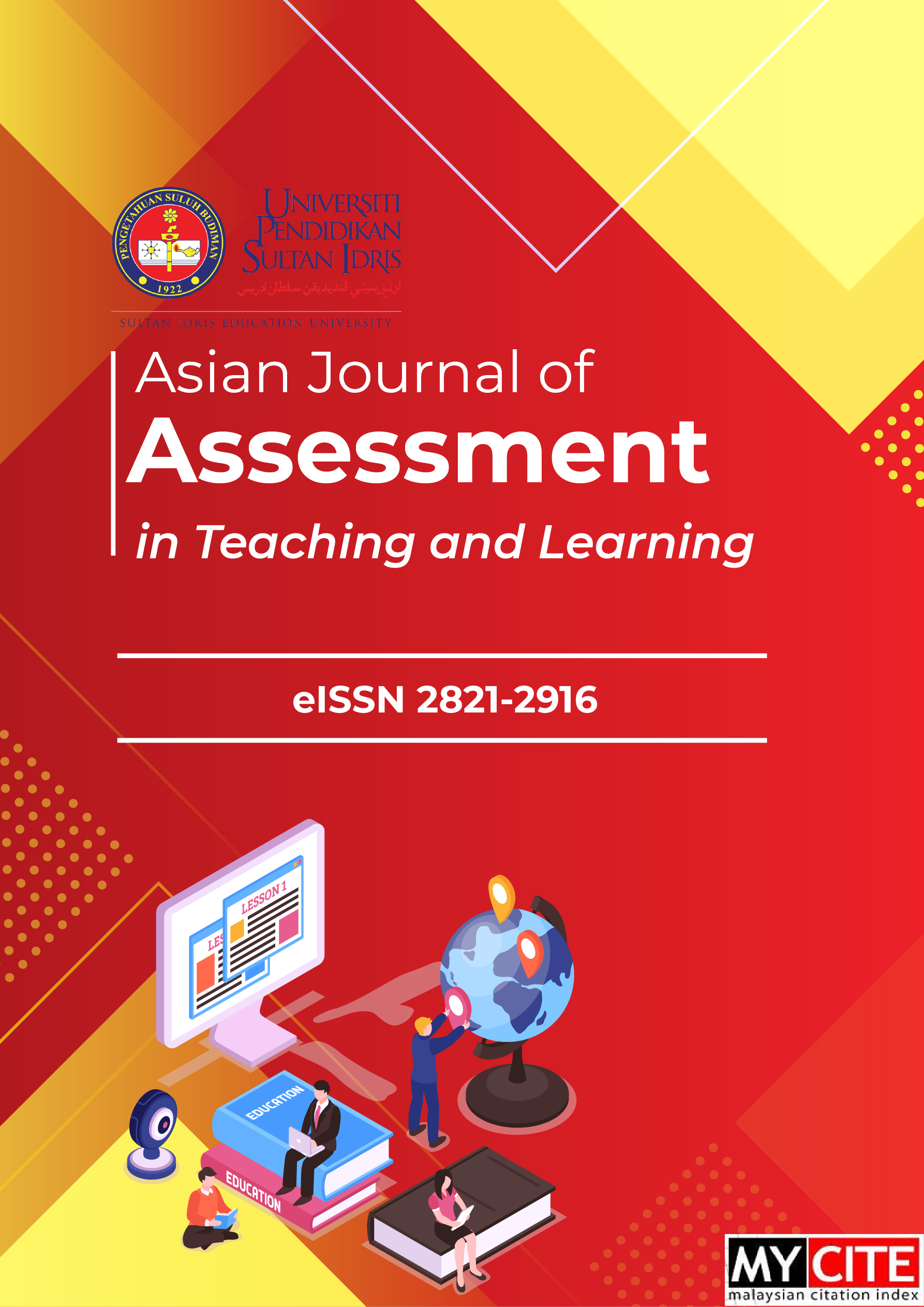Ethnoscience Based E-Book Sac Development to Promote Scientific Literacy of Theme 6 to The Fifth Grader of Elementary School in Mranggen Demak
DOI:
https://doi.org/10.37134/ajatel.vol12.2.3.2022Keywords:
E-book, ethoscience, scientific literacyAbstract
The study aimed at knowing and analyzing the need, design, properness and effectiveness of ethnoscience based e-Book SAC development to promote scientific literacy of Natural Science Subject-theme 6 of the fifth grader of Elementary School in Mranggen Demak. This study is a research and developmental model referring to Borg & Gall consisting of 10 phases simplified in four stages, i.e., preliminary stage, development and validation, field test and dissemination. In collecting the data, the study used observation, interview, questionnaire of need and expert validation sheet, student achievement test and documentation. The data analysis was qualitatively and quantitatively done. The subject of the study was 7 teachers and 45 students of fifth grader of Elementary School at the Sub-district of Mranggen, Demak Regency. The research result showed that the needed e-book SAC was digital book which is interactive, communicative and helping students study learning books easily, because the developed e-book SAC was completed with photos and videos relevant to the daily life as materials to be learned by students. The development design of the e-book was based on ethnoscience using the application of Smart Apps Creator (SAC) with the assistance of Swishmax software to make interactive design and animation. Based on the fit and proper analysis the developed model of e-book SAC was considered accountable due to the validation result of material and media expert with the value average or indicator average of 7,3% or equal to 91,6. The analysis result of the effectiveness of e-book SAC model based on ethnoscience showed that the model is effective to develop scientific literacy. The statement was based on the analysis result of N-Gain, and t-test examination on the experiment group 1, 2, and 3 with the average score of scientific literacy development on Fifth graders of 70,73, exceeding the determined minimum learning mastery standard, 65. The conclusion of the study is that the development of ethnoscience based e-Book SAC is necessary, accountable, and effective in line with the design of e-book SAC which is needed by teachers and students.
Downloads
References
Aka, K. A. (2019, October). Integration Borg & Gall (1983) and Lee & Owen (2004) models as an alternative model of design-based research of interactive multimedia in elementary school. In Journal of Physics: Conference Series (Vol. 1318, No. 1, p. 012022). IOP Publishing.
Dou, J., & Huang, B. (2022). Validation and Profile of Chinese College Students’ Digital Competence Scale. ICCCM Journal of Social Sciences and Humanities, 1(2), 21–29. https://doi.org/10.53797/icccmjssh.v1i2.3.2022
Dragoş, V., & Mih, V. (2015). Scientific literacy in school. Procedia-Social and Behavioral Sciences, 209, 167-172.
Goertzen, M. J. (2017). Introduction to quantitative research and data. Library Technology Reports, 53(4), 12-18.
Green, J. L., Camilli, G., & Elmore, P. B. (Eds.). (2012). Handbook of complementary methods in education research. Routledge.
Klassen, A. C., Creswell, J., Plano Clark, V. L., Smith, K. C., & Meissner, H. I. (2012). Best practices in mixed methods for quality of life research. Quality of life Research, 21(3), 377-380.
Lee, S. J., & Reeves, T. C. (2017). Edgar dale and the cone of experience. Foundations of Learning and Instructional Design Technology.
Moore, T. J., Glancy, A. W., Tank, K. M., Kersten, J. A., Smith, K. A., & Stohlmann, M. S. (2014). A framework for quality K-12 engineering education: Research and development. Journal of pre-college engineering education research (J-PEER), 4(1), 2.
National Research Council. (1996). National science education standards. National Academies Press.
Phoon, G. C., Idris, M. Z., & Rahina Nugrahani. (2021). Virtual Reality (VR) in 21st. Century Education: The Opportunities and Challenges of Digital Learning in Classroom. Asian Pendidikan, 1(2), 105-110. https://doi.org/10.53797/aspen.v1i2.15.2021
Rahim, F. R., Suherman, D. S., & Muttaqiin, A. (2020, March). Exploring the effectiveness of e-book for students on learning material: a literature review. In Journal of Physics: Conference Series (Vol. 1481, No. 1, p. 012105). IOP Publishing.
Rahman, M. I. I. (2021, February). Training of Scientific Literation and Self Efficacy Students Using Scientific Critical Thinking (SCT) Models. In Journal of Physics: Conference Series (Vol. 1788, No. 1, p. 012023). IOP Publishing.
Sjöström, J., & Eilks, I. (2018). Reconsidering different visions of scientific literacy and science education based on the concept of Bildung. In Cognition, metacognition, and culture in STEM education (pp. 65-88). Springer, Cham.
Valladares, L. (2021). Scientific literacy and social transformation. Science & Education, 30(3), 557-587.
Wagala, A. (2020). A likelihood ratio test for correlated paired multivariate samples. Chilean Journal of Statistics (ChJS), 11(1).
Wuryani, M. T., & Yamtinah, S. (2018). Textbooks Thematic Based Character Education on Thematic Learning Primary School: An Influence. International Journal of Educational Methodology, 4(2), 75-81.
Downloads
Published
How to Cite
Issue
Section
License
Copyright (c) 2022 Eni Kusumawati, Santoso Santoso, Irfai Fahturohman

This work is licensed under a Creative Commons Attribution-NonCommercial-ShareAlike 4.0 International License.





